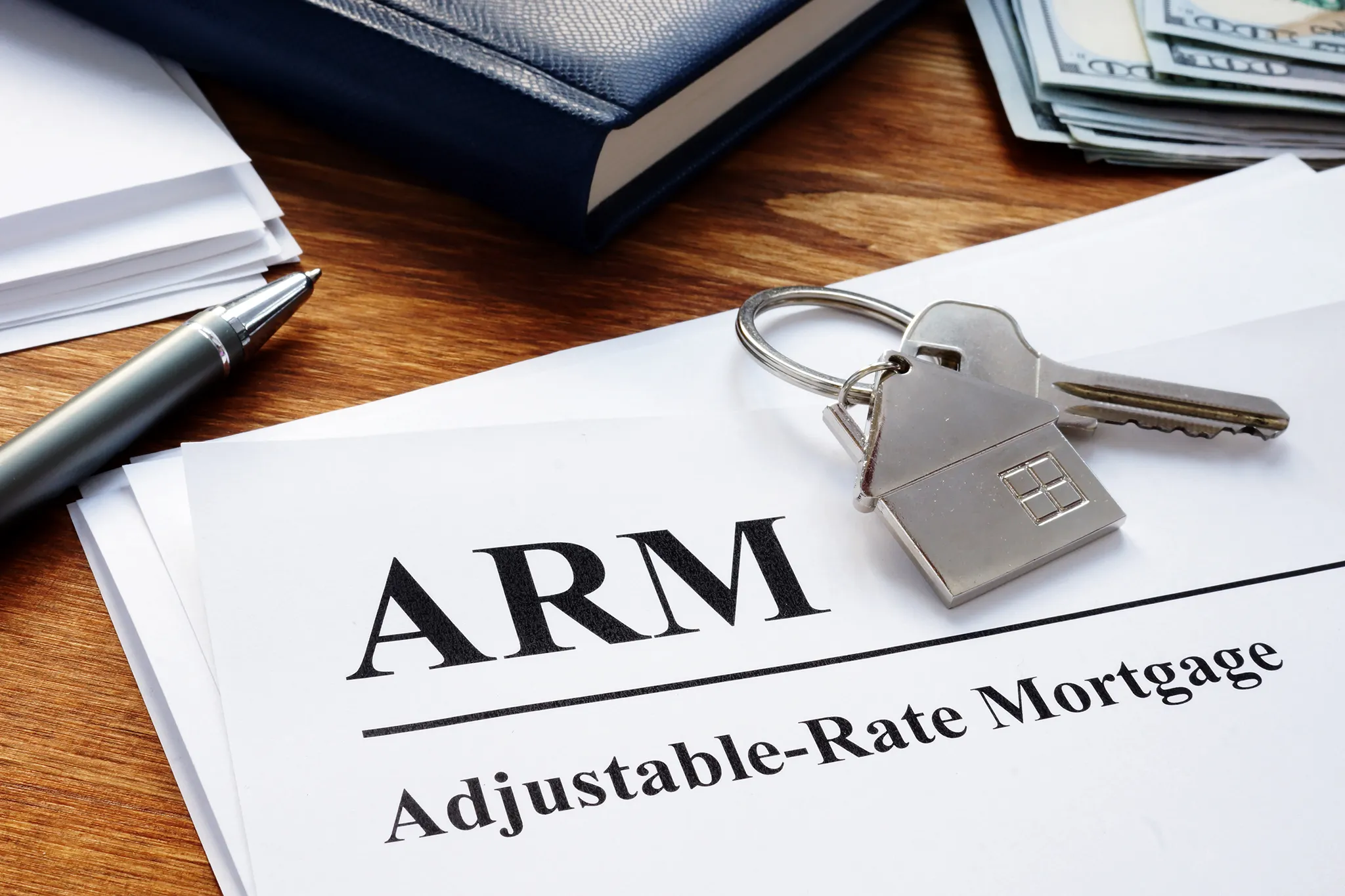- 24 August 2023
- 232
Navigating Mortgage Choices: Fixed Rates vs. Adjustable-Rate Mortgages

Introduction: Rising Rates and Mortgage Decision Dilemma
As interest rates rise, homeowners face a critical mortgage decision: fixed rates or adjustable-rate mortgages (ARMs)? This article dissects the implications of both options, providing insights into fixed-rate stability and ARM flexibility, as well as guiding factors to help you make an informed choice that aligns with your financial aspirations.

Fixed-Rate Mortgages: Stability in Uncertain Interest Rate Times
Fixed-rate mortgages offer predictability and stability. The interest rate remains constant over the loan term, shielding you from market fluctuations. While initial rates might be higher than those of ARMs, the long-term consistency can provide peace of mind, making fixed-rate mortgages ideal for those who value financial stability and plan to stay in their homes for an extended period.
Adjustable-Rate Mortgages: Flexibility Amidst Rate Volatility
ARMs come with an initial fixed period followed by rate adjustments at predetermined intervals. The initial rates are typically lower than those of fixed-rate mortgages, making ARMs attractive for those seeking short-term benefits. However, ARMs carry the risk of rate increases in the future, which could lead to higher payments. They are suitable for those willing to take on potential rate volatility and short-term home ownership plans.
Interest Rate Forecasts: Gaining Insights for Decision Making
Predicting interest rate movements is challenging, but understanding economic indicators can provide insights. Following trends in central bank policies, inflation projections, and economic data releases can help you anticipate potential rate shifts. However, it’s essential to remember that markets can be unpredictable, and making decisions solely based on forecasts carries risks.
Assessing Your Risk Tolerance: Long-Term Planning vs. Short-Term Benefits
Your risk tolerance plays a significant role in this decision. Fixed-rate mortgages offer stability and are a safer option if you’re risk-averse or planning for the long term. ARMs can be advantageous if you’re comfortable with potential rate adjustments and plan to sell or refinance before the adjustable period begins.
Financial Goals and Time Horizon: Aligning Mortgage Choice with Life Plans
Consider your financial goals and time horizon. If you’re looking for long-term stability, a fixed-rate mortgage aligns with that objective. If you plan to move or refinance in the near future, an ARM’s lower initial rates might make more sense. Evaluate how your choice fits into your broader financial strategy.
Market Conditions and Economic Factors: Reading the Mortgage Market Tea Leaves
Market conditions and economic factors influence interest rates. Monitoring economic indicators and keeping an eye on market sentiment can provide valuable context for your decision. When rates are expected to rise steadily, a fixed-rate mortgage might be more appealing. In a declining rate environment, an ARM’s initial lower rates could be advantageous.
Refinancing Considerations: Adapting to Changing Rate Environments
Your mortgage choice doesn’t have to be permanent. Refinancing offers the opportunity to switch between mortgage types if your circumstances change. If rates rise after you secure an ARM, you might consider refinancing to a fixed-rate mortgage to lock in a stable rate. Conversely, if rates drop, refinancing an existing fixed-rate mortgage could lead to potential savings.
Making the Choice: Tailoring Your Mortgage to Your Individual Needs
Ultimately, the mortgage decision boils down to your unique situation. Evaluate your risk tolerance, financial goals, time horizon, and the prevailing market conditions. Consider consulting with financial professionals who can provide insights tailored to your circumstances, helping you make an informed and strategic decision.
Conclusion: Making Informed Mortgage Decisions Amidst Rate Fluctuations
As interest rates fluctuate, the choice between fixed-rate and adjustable-rate mortgages gains significance. Fixed rates offer stability, while ARMs provide flexibility. Understanding your financial goals, risk tolerance, and market trends is crucial for making an informed decision that aligns with your aspirations and ensures financial well-being. In summary, the fixed rates vs. adjustable-rate mortgage decision is a complex one, influenced by your individual financial circumstances and goals. Careful evaluation and consideration of these factors will empower you to choose the mortgage option that best suits your short-term and long-term plans.

